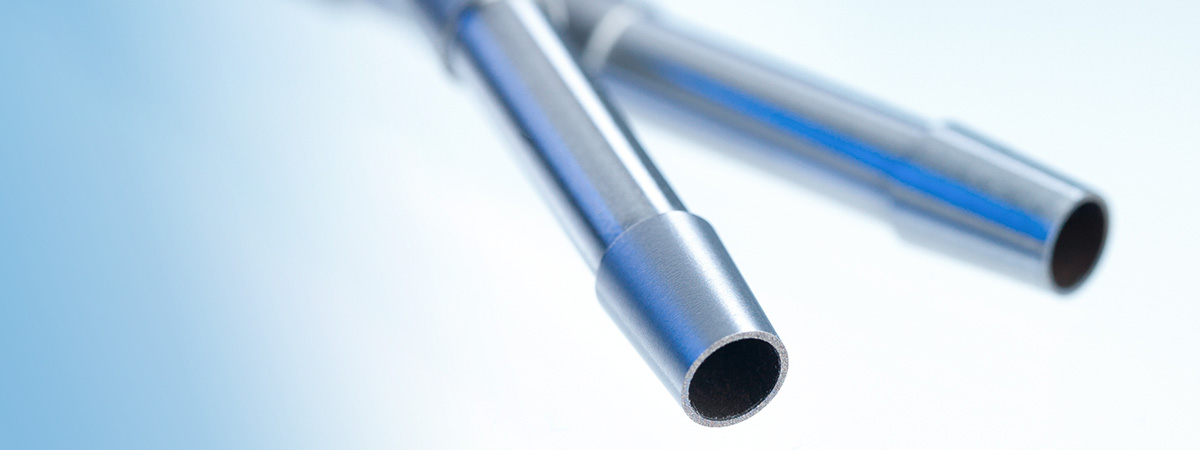Nitinol
NITINOL is not just simply another material. It is much more. Shape Memory and Superelasticity are properties not found in other materials, yet allowing innovative solutions. NITINOL is a preferred material in the medical device industry, where advanced stents and filters as well as a variety of flexible instruments are made from our semi-finished products. The advantages of NITINOL have been recognized by the automotive industry and in electrical engineering as well.
NITINOL alloys are available either in superelastic condition or as shape memory alloys. Depending on their composition, they have a transition temperature of -15°C to +80°C. This means that their properties can be optimized for the specific application.
Special features of NITINOL:
- elastic ductility (10x greater than in steel)
- good biocompatibility
- high buckling resistance
Cobalt-based alloys
Especially in the field of orthopedics the family of Cobalt-base alloys are in high demand due to their high density and resulting good visibility in X-ray light.
But also in the field of cardiovascular stents the alloys L605 and MP35N are in growing demand due to their outstanding corrosion features.
Characteristics of Cobalt-base alloys:
- high density
- high E-module
- small grain size
Stainless steel
The very high corrosion resistance and resulting biocompatibility as well as the extremely small inclusion size make our Stainless Steel 316LVM a popular alloy for implants and the leading alloy for cardiovascular stents.
Characteristics of our Stainless Steel alloys:
- good tensile strength/strength characteristics
- high elasticity in the as drawn condition
- small grain size
Tantalum
For quite some time tantalum is used because of the high density for X-ray markers. On top of that tantalum is suitable for implantation due to its excellent biocompatibility.
Titanium-based alloys
The Titanium-base alloy Ti45Nb features extremely good biocompatibility and a lower density than Stainless Steel or Cobalt-base alloys.
Characteristics of Titanium-base alloys:
- satisfactory tensile strength
- neutral in contact with (human)tissue
PRECIOUS ALLOYS
Special features of precious metal alloys:
- High density, therefore very good X-ray visibility
- Neutral in contact with tissue
- Very good electrical conductivity
Typical applications
- Markers for implants and instruments
- Aneurisms Implants
- Products that need to conduct electricity in the body with as little loss as possible, e.g. pacemakers and electrodes

